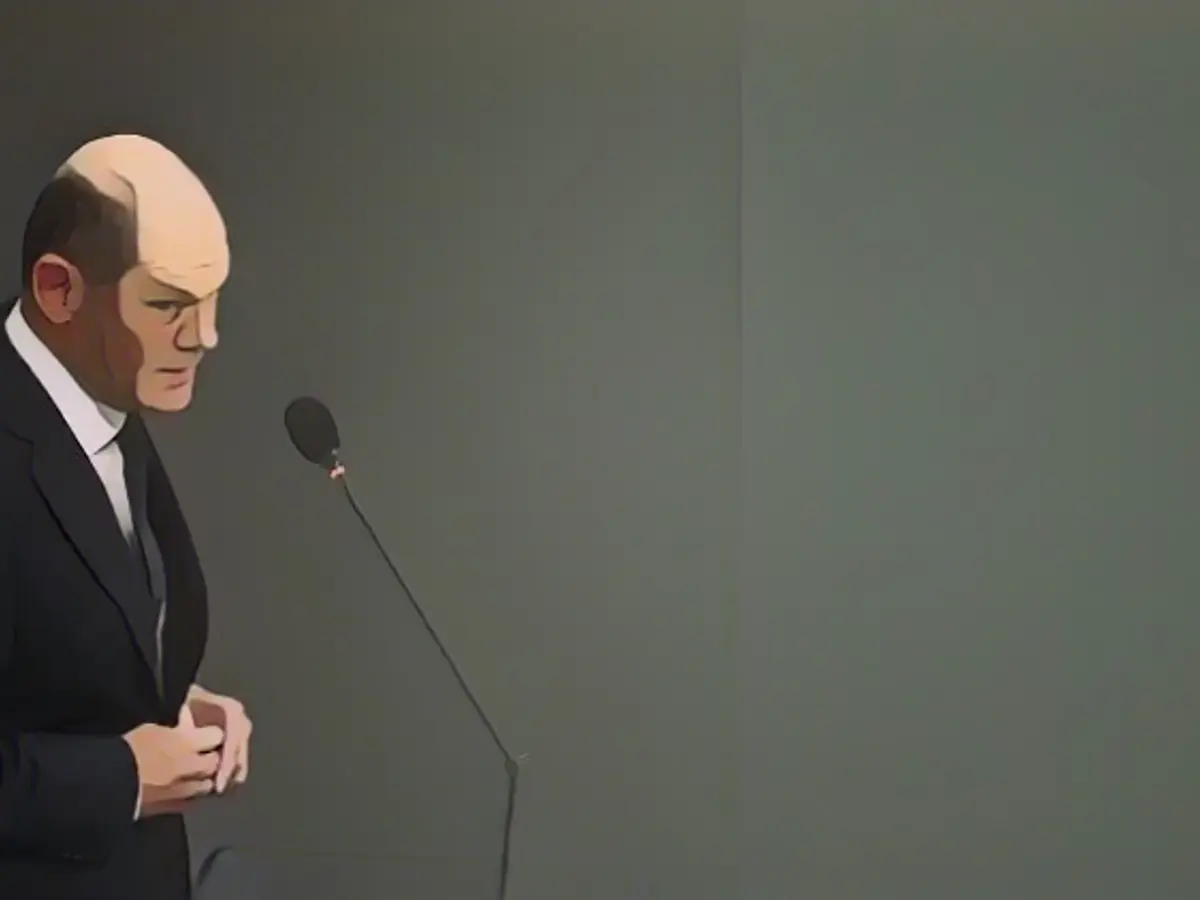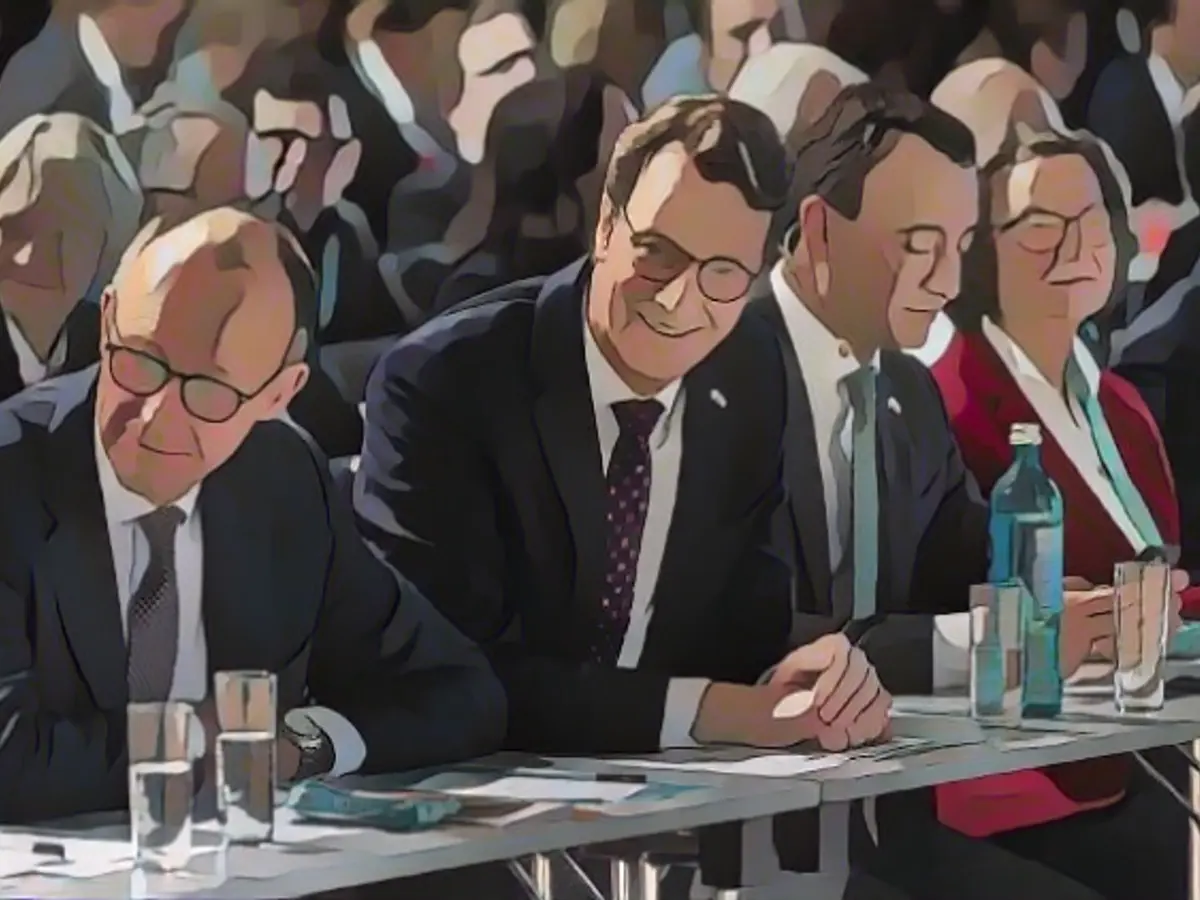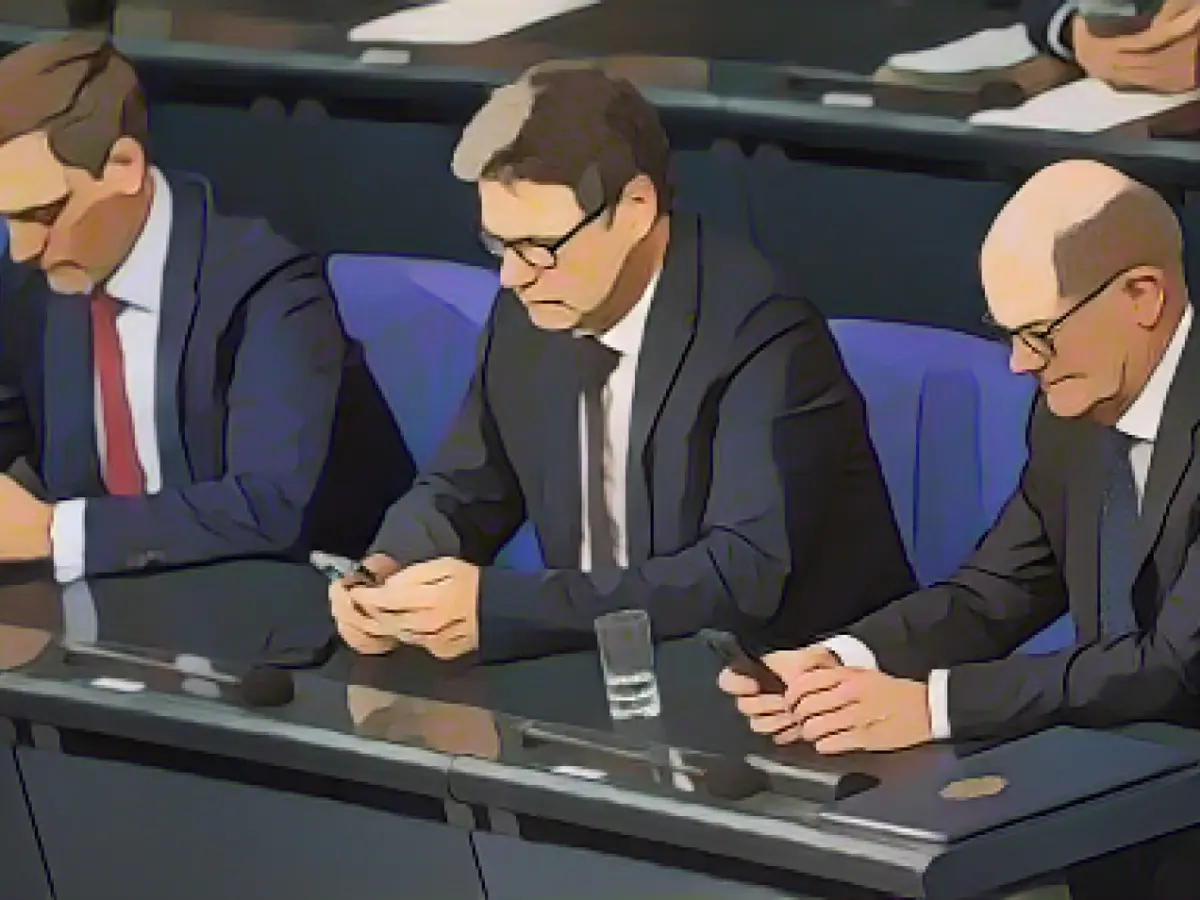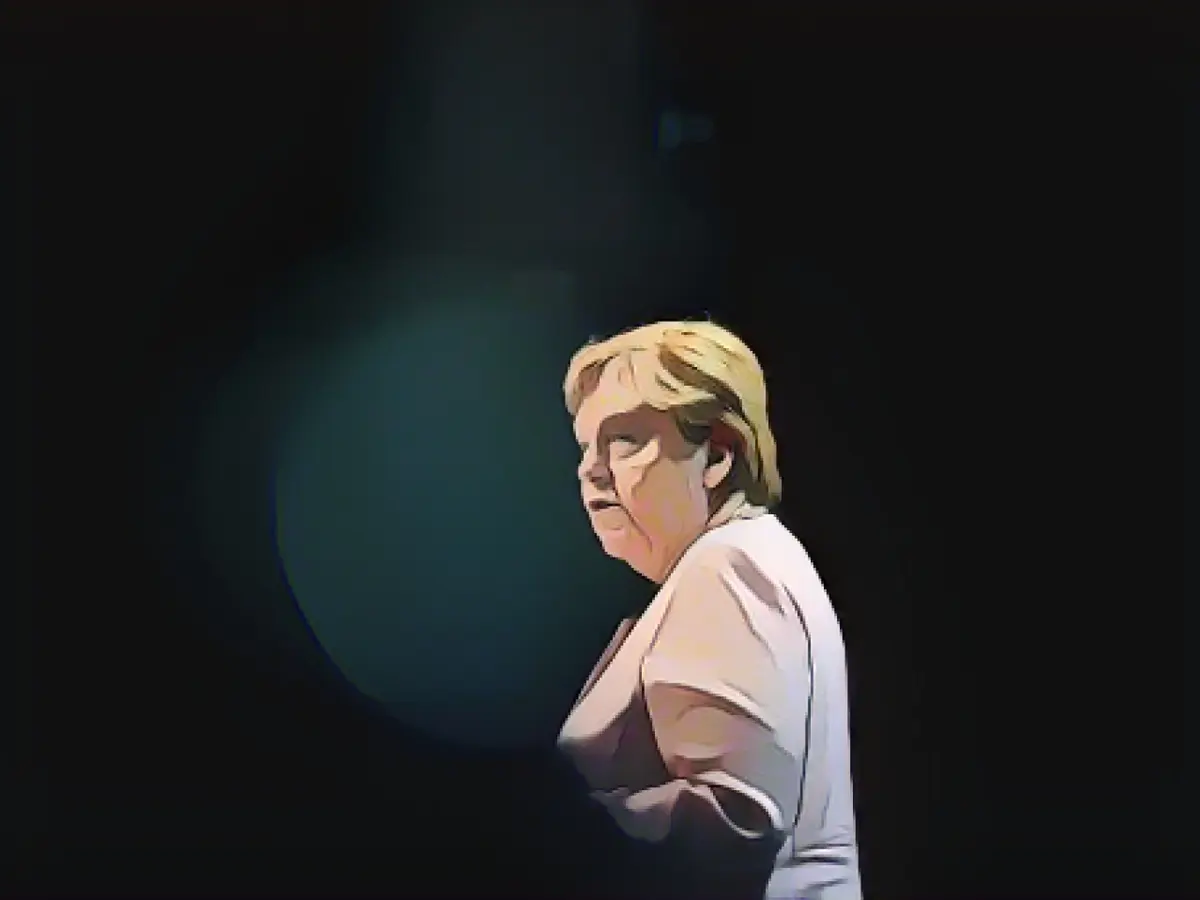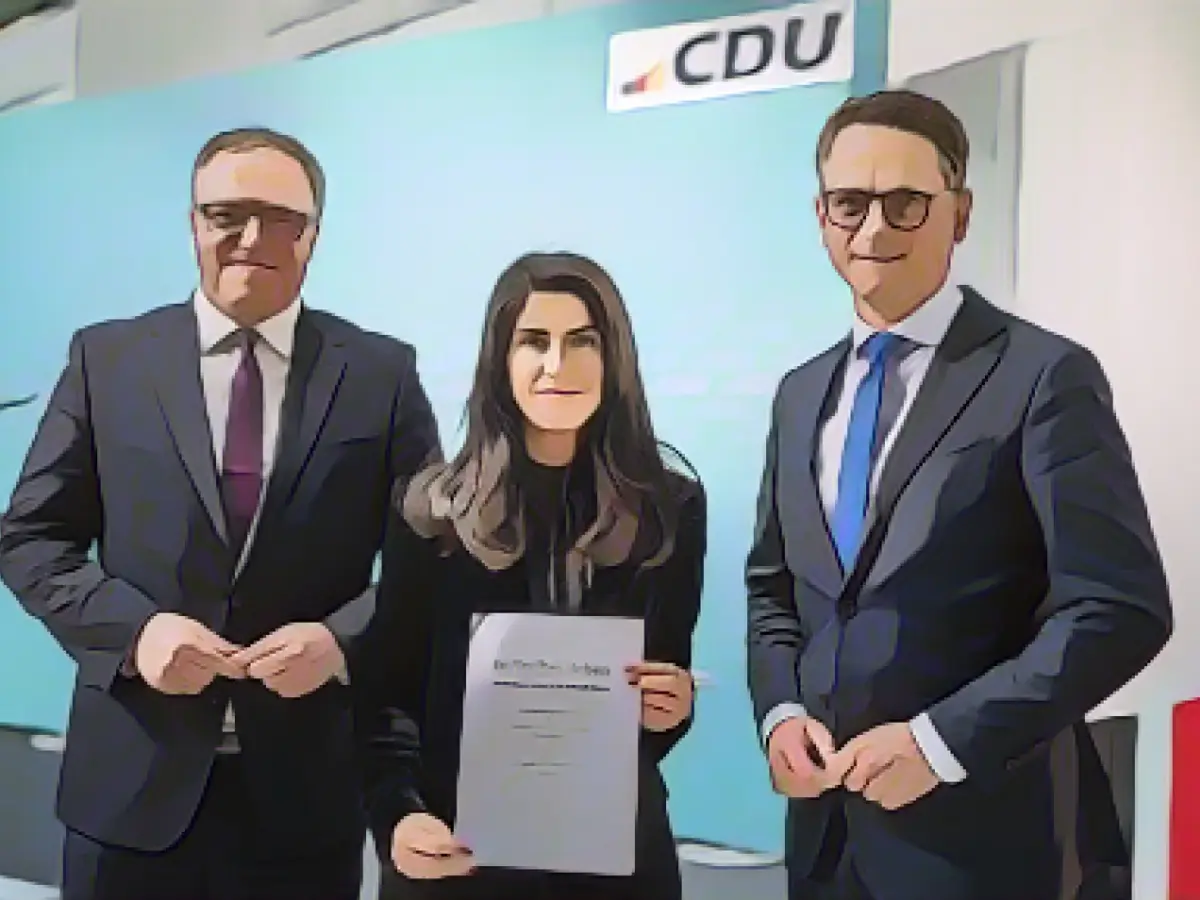Title: The Unsettling Aftermath of the 60 Billion Euro Void - A Challenge for Modernization Policies
Introduction: The Ghost of Groko and the Budgetary Minefield
The recent decision of the Federal Constitutional Court has cast a shadow over modernization policies in Germany, plunging climate and transformation initiatives into uncertain territory. Despite the renewed interest in the "Groko" (a reference to the Grand Coalition), the ruling has brought the nation's financial future under question, with potentially far-reaching consequences.
The Double-Edged Sword of Popularity: Groko, Debt Brake, and the Modernization Backlog
With the popular Groko once again in the spotlight, the current traffic light coalition grapples with modernization challenges, particularly in the realm of climate and transformation policies. The halt on funding for projects originating from the now-stalled Climate and Transformation Fund (KTF) is a stark reminder of the potential pitfalls of relying on ad hoc financial solutions. As investments in analog and digital infrastructure, schools, and infrastructural safeguards languish, the importance of overcoming the perceived risks of debt and fiscal restraint becomes ever more apparent.
The Unforeseen Consequences of the Constitutional Court Ruling
Climate and transformation policy has found itself stigmatized as a lesser concern, overshadowed by the popularity contest between the debt brake and the desire for fiscal stability in the governing coalition. Yet, the seemingly untested resolve of German citizens to maintain a balanced budget has allowed their homes to succumb to disrepair, with an eye-watering estimated shortfall of 60 billion euros now required for much-needed maintenance. As the CDU/CSU threatens further legal action against the Economic Stability Fund, a grim scenario of reckoning for the nation looms.
The Traffic Light Government's Struggle for Resilience
Having inherited a delicate political climate and internal divisions, the traffic light coalition has found itself caught in the crossfire of this fiscal pandemic, with the Court's ruling serving as an unexpected adversary. Despite administrative setbacks and a patchy track record, the coalition has managed to prove its mettle on various fronts, including boosting the Germany ticket, implementing a 12-euro minimum wage, and supporting Ukrainian efforts. However, these positive strides now fade into the background as the consequences of the ruling unfold.
The Imperative for a New Approach: Debt Brake Reformation
With the ruling of the Federal Constitutional Court, the time to reevaluate the antiquated debt brake has come. The short-sighted adherence to a fiscal straightjacket may well be at odds with the demands of modernization and the urgent need for sustainable investment in key areas - from education and climate initiatives to infrastructure. Relinquishing the rigid constraints imposed by the debt brake could pave the way for new avenues of opportunity, enabling sizeable injections of funds to revitalize Germany's national landscape.
Resistance to Change: The CDU/CSU and the FDP's Rigid Stance
The opposition, spearheaded by CDU leader Friedrich Merz, and the FDP have long held fast to the debt brake as the cornerstone of fiscal responsibility. Predictably, their unyielding stance on this matter poses a significant obstacle to the implementation of any proposed debt brake reform. Regardless of the broader political landscape, channeling efforts towards an alternative financial framework could prove a pivotal step towards propelling sustainable modernization forward.
Towards a New Dawn: Beyond the Debt Brake and the Brink of Crisis
The tightly-woven political strands that have emerged from this Constitutional Court ruling have left a tangible cloud of tension hanging over Germany. However, it is also an opportunity to cast anew the nation's course in modernization strategy, with the resounding failures of the past urgently calling for reforms in budgetary practices and long-term funding mechanisms. The collapse of the status quo is an invitation to seize the moment and usher in a new era of progress and stability.
Enrichment Data Integration
Implications of the Ruling
- Budgetary Practices: Future allocations of funds from the Climate and Transformation Fund (KTF) may now be subject to annual reviews and re-authorizations to ensure compliance with the court's ruling.
- Funding Stability: The long-term financial sustainability of projects supported by the KTF faces uncertainty as the ruling necessitates annual re-evaluation of emergency credit authorizations.
Potential Solutions
- Constitutional Reform: Introducing a legal requirement for shared financial responsibility between the federal government and the federal states for climate adaptation initiatives would offer a more stable and long-term financing framework.
- Joint Financing Instrument: The development of a joint financing instrument between the federal government and the federal states for climate adaptation projects is essential for accelerating the implementation of these activities.
- Alternative Funding Mechanisms: Direct incentives and emissions reduction bonuses could be used to supplement budgetary allocations, though their effectiveness and implementation necessitate careful consideration.
- Energy Transition Funding: Ensuring the continuity and predictability of revenue from the Climate and Transformation Fund, derived from emissions allowance sales, would bolster support for climate and transformation policies.
[1] Uwe Schneider et al., "Klimakrisenbewältigung in Deutschland," German Institute for Economic Research (DIW), 2022.
[2] German Environment Ministry, "Climate Adaptation in Germany," 2022.
[3] Nathalie von Wintzingerode, "Klimaschutz im Debattierdialekt," German Federal Ministry for the Environment, Nature Conservation and Nuclear Safety, 2021.
[4] German Federal Ministry for the Environment, Nature Conservation and Nuclear Safety, "Climate Adaptation in Germany," 2022.
[5] Climate and Transformation Fund. (2021, September 15). Germany's Climate Protection Investment Fund. Retrieved March 17, 2023, from
